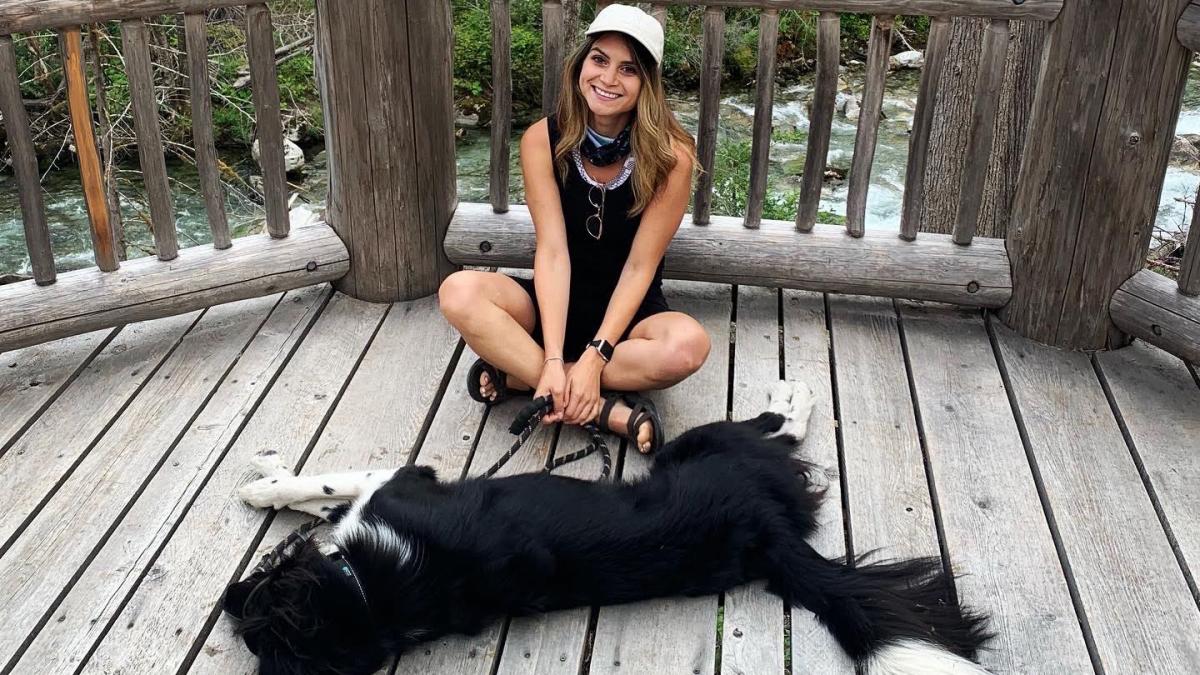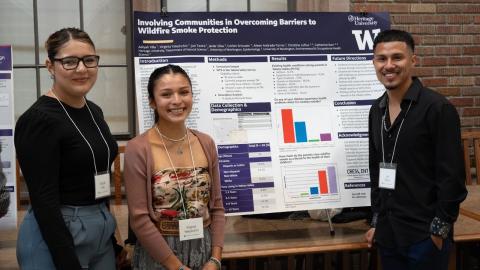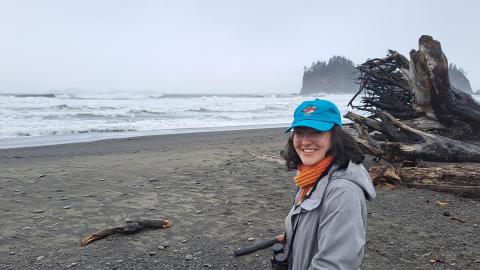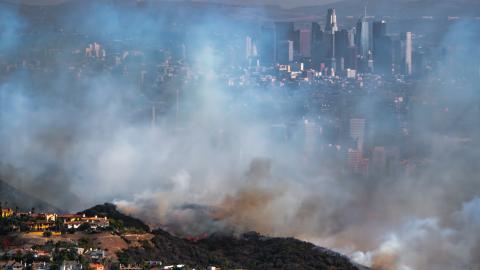Nancy Carmona
PhD, Environmental and Occupational Hygiene
Hometown
West Sacramento, CA
Future plans
Teaching, research and working on environmental health policy
“We need to be able to take the science and give it to the people, communicate in a way that people can understand, not just in dense scientific terms.”
- Nancy Carmona
Editor’s note: Today is Husky Giving Day! Please make a gift today to support students like Nancy through the DEOHS Environmental Health Student Support Fund. This fund helps graduate students attend conferences to share their research and learn from other scientists.
It was always Nancy Carmona’s teachers who built her back up when the doubts started to creep in.
There was the kind and encouraging 4th grade teacher in Carmona’s gifted program, where Carmona was one of just a handful of Latino students at her mostly white school.
There was the AP Biology teacher in high school who urged her onward in her science studies.
As a PhD student in the UW Department of Environmental & Occupational Health Sciences (DEOHS), Carmona found new role models and mentors who helped open doors and hone her skills as a scientist, including DEOHS faculty members Lianne Sheppard, Elena Austin, Edmund Seto and Vanessa Galaviz.
“Having teachers validate that you are smart, that you can do this—that's so important when you come from a background where there aren’t as many examples of people being successful in science who look like you,” Carmona said.
Her role models have in turn inspired Carmona to pursue a career in public service and teaching after graduation. She expects to graduate with her PhD in Environmental and Occupational Hygiene this summer.
“Nancy’s analytical skills and her passion for communicating environmental health information allow her to tackle issues of environmental justice in impactful ways,” Austin said. “She has been unique among my students in being equally comfortable analyzing a large dataset as she is developing infographics and leading community discussion sessions.”
Combining science and environmental justice
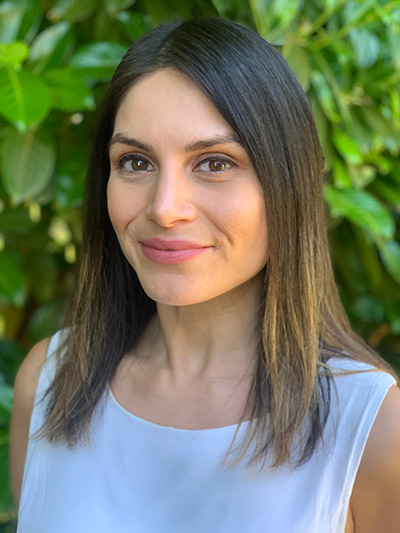
As a public health researcher, Carmona combines her interests in environmental exposures, public policy and health disparities.
“Putting it all under an environmental justice lens ties it together for me,” she said.
Carmona discovered her interest in environmental health as an undergraduate at the University of California, Davis, where she earned her BS in Environmental Toxicology.
Through an internship, she taught youth in rural California communities about issues like water quality and environmental exposures and realized she had the ability to make strong connections with them.
“I was working with a lot of families, and the majority of them were Mexican immigrant families like my own,” Carmona said. As a first-generation Mexican American, she understood what it was like to grow up in a Spanish-speaking household while trying to navigate the American educational system mostly on your own.
“It matters where you live”
She went on to earn her MPH from San Francisco State University, focusing on community health education, before taking a job on a pediatric asthma study as a clinical research coordinator.
She often gave the parents in that study her personal phone number, and if their child had an asthma attack, she would sometimes get a call from them looking for help.
Carmona started thinking about where the families lived and how neighborhood air quality was influencing their children’s health.
“We all know the history of redlining,” she said. “It matters where you live. There are these structural issues that underlie everything about our health, and that has real-life ramifications for people.”
How air pollution affects children, older adults and communities
Her PhD work combines research on several different projects related to air quality and its health effects.
She works with Sheppard on the Adult Changes in Thought study to investigate the link between fine particulate matter pollution and cognition in older adults.
She is partnering with Austin on the Healthy Air, Healthy Schools project to measure and identify sources of ultrafine particle pollution in schools and whether portable air cleaners can improve classroom air quality.
She previously worked with Galaviz on a separate study looking at air quality near child care facilities, community and senior centers in South Seattle.
And Carmona is now working with Seto to develop a tool that will help people compare the health risks they face from air pollution in their neighborhoods to other Washington communities. This will become part of the Washington Environmental Health Disparities Mapping Project developed by DEOHS and our partners.
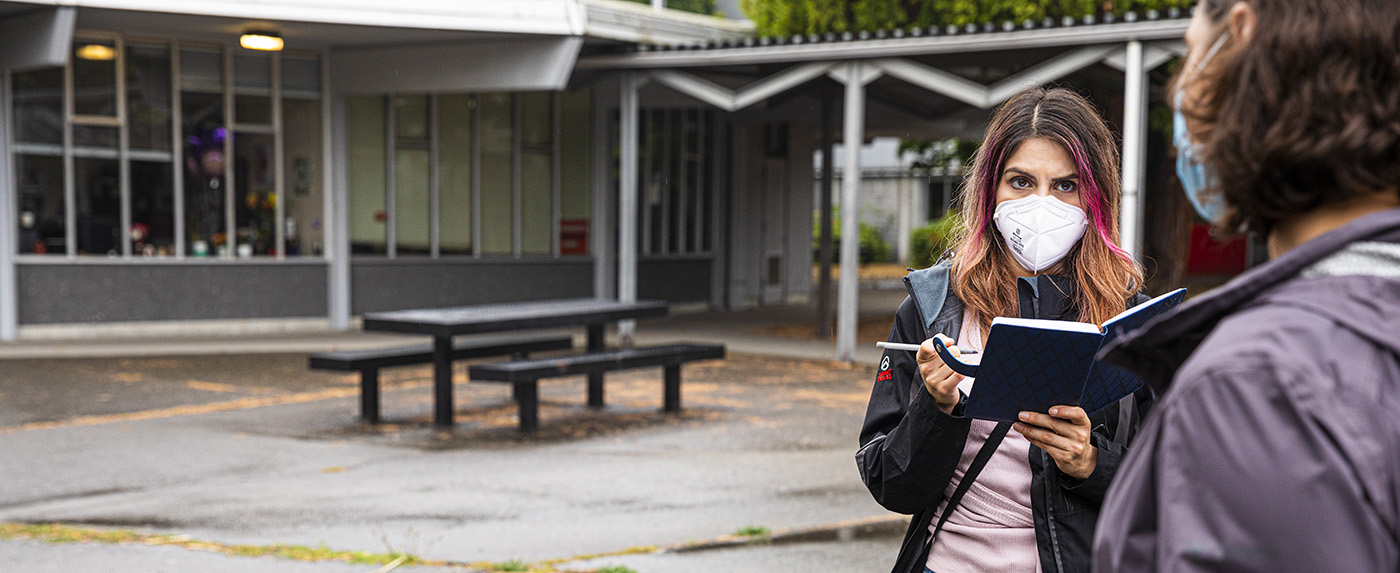
Giving science to the people
What’s the common thread running through these research projects? Carmona says it’s about “decoding science” and communicating with the public about their actual health risks.
“To me, it doesn’t make sense to do the research if you’re not helping people with it.”
In her work with communities, Carmona prioritizes reporting back with her findings and recommendations.
“This is what we found, this is what it means, this is what you can do about it. I want people to see they can take action,” she said.
“I really admire Nancy’s commitment to the community and her efforts to learn how to communicate with them clearly and in ways that meet their needs and interests,” Sheppard said. “She is dedicated to her work, and I appreciate her willingness to seek and benefit from advice.”
Funding from donors “enriches my work”
Funding support from the University of Washington has helped make Carmona’s journey possible. Recently, Carmona received funding through the department’s donor-supported Environmental Health Student Support Fund to attend the Air Sensors International Conference.
“These conferences are just amazing, and it really enriches my work and academic experience. We read all of these academic papers, then we actually get to the meet these renowned authors and make connections,” she said. “It makes me realize I can do this, too.”
A supportive group of faculty mentors and the friendships she has made with other students in her cohort have also been pivotal in her UW experience.
She is part of a close-knit group of about 10 DEOHS doctoral students who gather frequently for dinners, Ultimate Frisbee and long conversations about their work and lives.
Carmona is also a mentor herself, leading the DEOHS "coders group" where she hosts weekly meetings on coding and data analysis and trains new DEOHS students on the programming language R.
Carmona’s doctoral education has also been supported by grants from the UW Office of Graduate Student Equity and Excellence and the Biostatistics, Epidemiologic and Bioinformatic Training in Environmental Health (BEBTEH) as well as a fellowship from the UW Achievement Rewards for College Scientists and other funding sources.
